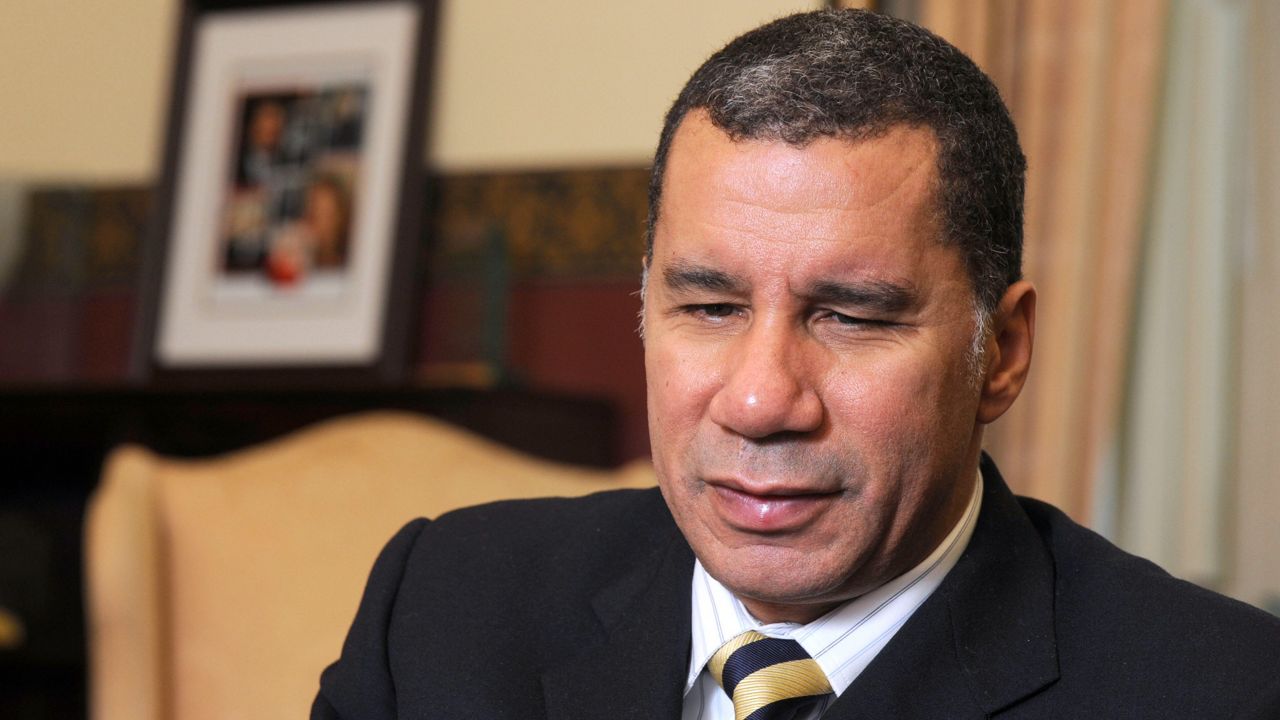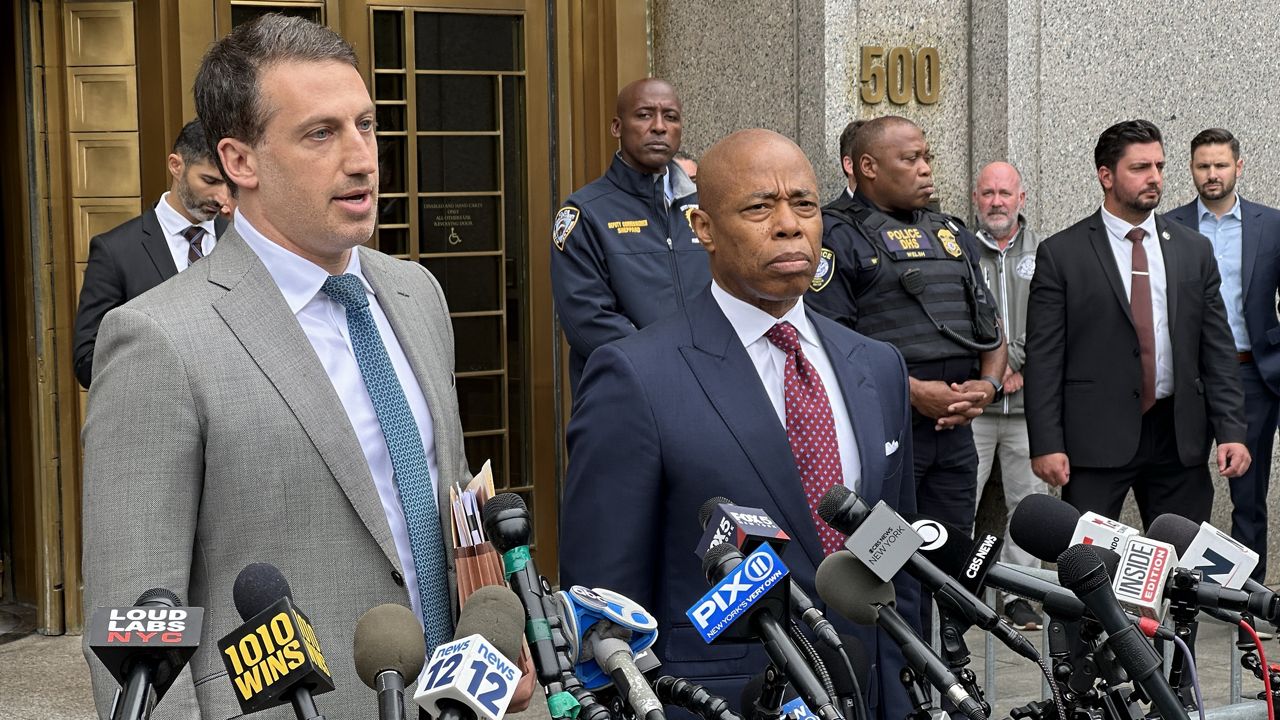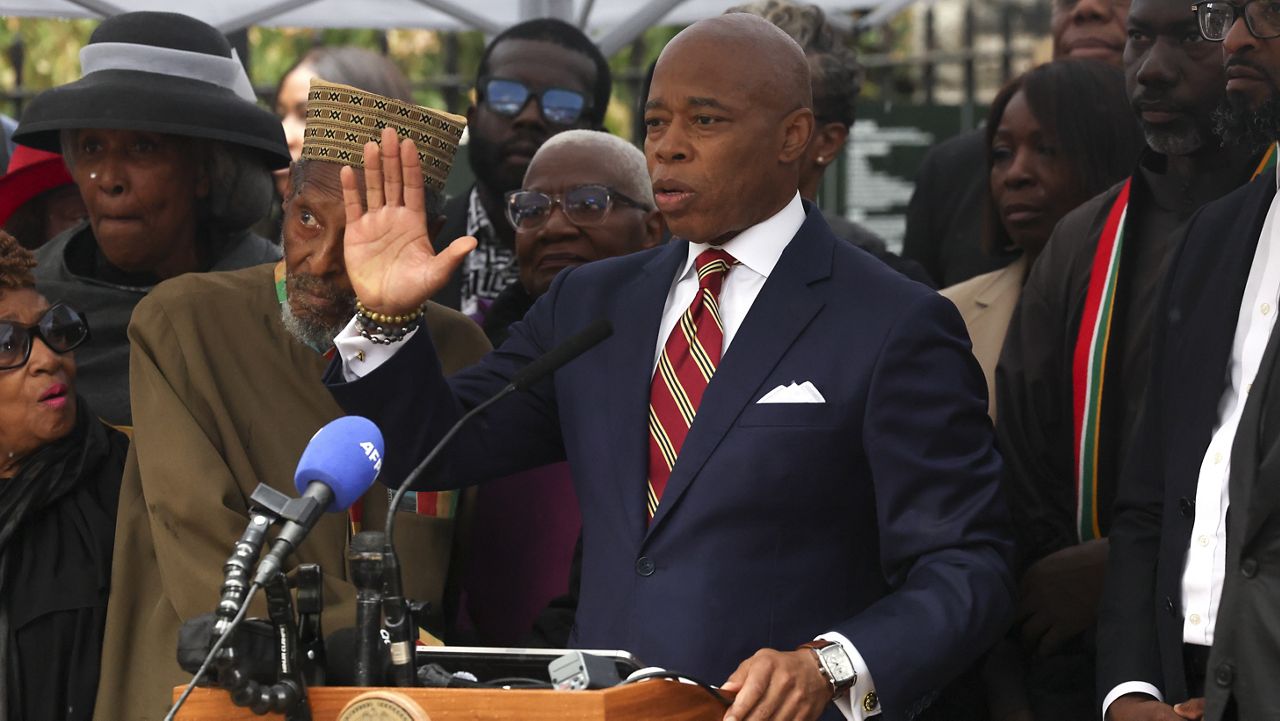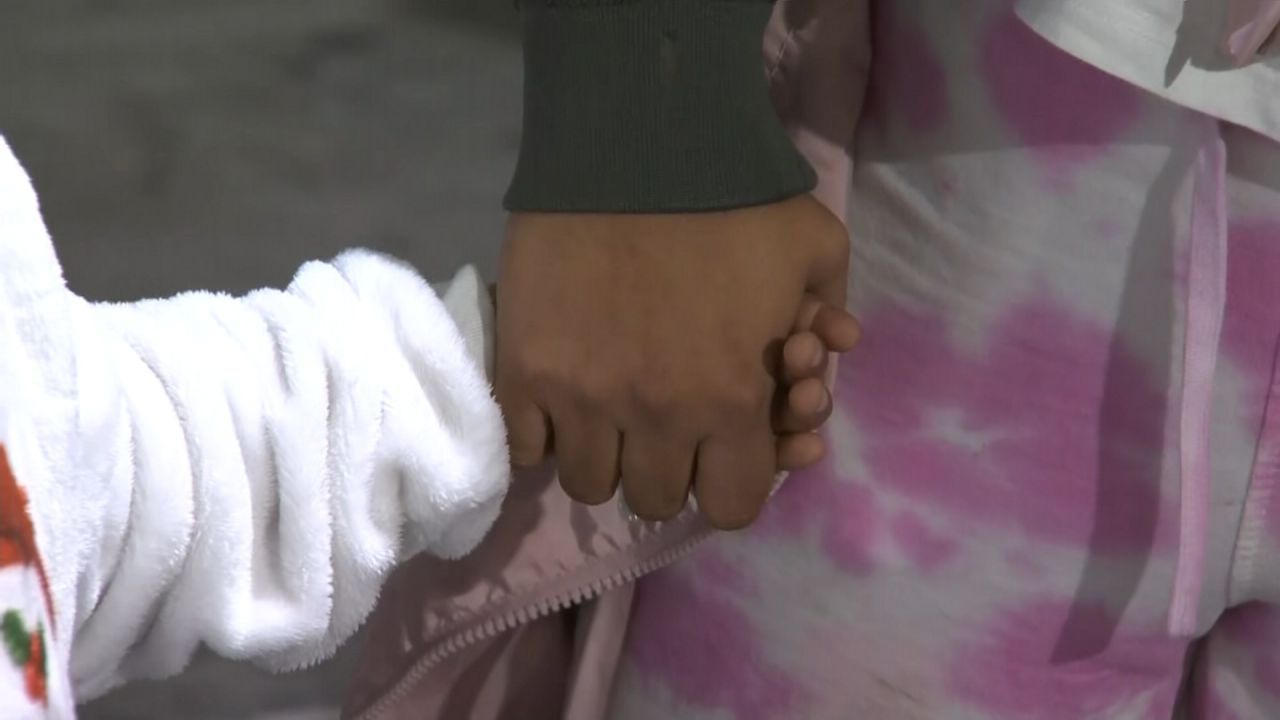A group of migrants has rejected the city’s plan to move them from a hotel in Manhattan to a cruise terminal in Brooklyn that advocates have likened to a “detention center.”
The city began moving single adult male asylum seekers from the Watson Hotel in Hell’s Kitchen to the Brooklyn Cruise Terminal in Red Hook over the weekend, Mayor Eric Adams’ press secretary, Fabien Levy, said in a statement provided to NY1.
One group of migrants, however, returned to the hotel and refused to leave after seeing what they described as poor conditions at the terminal.
What You Need To Know
- The city began moving single adult male asylum seekers from the Watson Hotel in Hell’s Kitchen to the Brooklyn Cruise Terminal in Red Hook over the weekend, the mayor's press secretary said
- One group of migrants, however, returned to the hotel and refused to leave after seeing what they described as poor conditions at the terminal
- The mayor's press secretary defended the Red Hook site, saying it "will provide the same services as every other humanitarian relief center in the city"
New York Immigration Coalition executive director Murad Awawdeh said the group “refused to reside in another temporary shelter that put them further away from the services they need to access to get on the road to self-sufficiency.”
“Housing rights experts and immigrant rights advocates like ourselves have been stating for weeks that the new Brooklyn Cruise Terminal [relief center] is in a transit desert, much like the Orchard Beach and Randall’s Island locations were, and doesn’t meet the health and safety needs of residents,” Awawdeh said in a statement.
“Rather than creating more unsuitable, temporary shelters, the city must support residents by moving them into permanent housing, especially those that have been stuck in our shelter system for years,” he added.
As of Monday, several dozen asylum seekers were still gathered outside the hotel. It wasn't immediately clear how many migrants had been housed at the site or how many had refused to leave. A number of Mutual Aid groups have joined the migrants at the hotel, providing them with tents, blankets and food.
Levy posted on Twitter Monday evening that their “lack of reasoning here is astounding.”
I don’t even understand the logic here. Instead of encouraging asylum seekers to sleep in warm, indoor, temperature-controlled quarters at the Brooklyn Cruise Terminal, these groups are telling migrants to sleep in tents on the streets.
— Fabien Levy (@Fabien_Levy) January 30, 2023
The lack of reasoning here is astounding. pic.twitter.com/XoT7LmAaAY
Several migrants who spoke with NY1 said they had been relocated to the Watson Hotel from the city’s short-lived migrant facility on Randall’s Island, and were afraid moving to Red Hook could cost them the jobs they had managed to find. They also said that there was no place to safeguard their personal items at the Brooklyn Cruise Terminal site.
At least one migrant compared the new site to a prison. South Bronx Mutual Aid, one of the groups that have been assisting migrants arriving in New York City, described the site as a “detention center.”
The NYPD on Sunday said police officers responded to the hotel for "crowd control," but did not arrest anyone. A City Hall spokesperson said the department responded because non-asylum seekers began trying to enter unauthorized sites inside the hotel.
The city opened the Brooklyn Cruise Terminal site — its fifth relief center for migrants — earlier this month, with plans to move single adult men there from the Watson Hotel. Officials said the Watson Hotel would transition into a site serving asylum seeker families with children.
In his statement Sunday, Levy defended the Red Hook site.
“The facilities at Brooklyn Cruise Terminal will provide the same services as every other humanitarian relief center in the city, and the scheduled relocations to Brooklyn Cruise Terminal this weekend took place as planned,” Levy wrote.
“More than 42,000 asylum seekers have arrived in New York City since last spring and we continue to surpass our moral obligations as we provide asylum seekers with shelter, food, health care, education, and a host of other services,” he added. “We remain in serious need of support from both our state and federal governments.”







